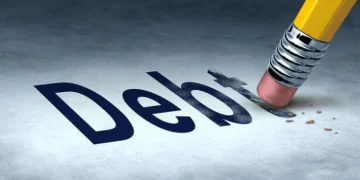PIAC Outlines Ten Recommendations to Counter Decline in Ghana’s Crude Oil Production
The Public Interest and Accountability Committee (PIAC) has outlined ten recommendations to help reverse the nation’s declining crude oil production, warning that the ongoing decline in output could spell trouble for petroleum revenues, investment and complicate resource management.
In a communiqué released on October 30, 2024, PIAC called for a multi-pronged approach targeting both regulatory reform and infrastructure investment to attract the necessary capital and innovation needed to stem the production decline, which has continued over the past four years.
Following a two-day technical consultative workshop with industry stakeholders, PIAC identified several critical factors behind the downturn. These include the depletion of maturing fields, investment challenges linked to both internal fiscal constraints and global shifts toward green energy, and technical hurdles like equipment malfunctions and geological uncertainties.
PIAC also cited a lack of reliable, high-quality data and insufficient research collaboration between industry and academia as obstacles to more informed, data-driven decision-making.
At the heart of PIAC’s recommendations is a call to overhaul Ghana’s petroleum regulatory framework. The committee recommended an immediate upgrade to the legal, regulatory, and fiscal structures governing the oil and gas industry, arguing that Ghana’s investment climate must be reinvigorated to attract capital to an increasingly challenging sector.
Developing a transparent and predictable framework for licensing and regulatory compliance, PIAC noted, could help rebuild investor confidence, especially as the country seeks to draw in new capital against a backdrop of global energy transition pressures.
Moreover, PIAC underscored the need for public-private partnerships (PPPs) to support infrastructure expansion, particularly in the underdeveloped gas segment, where untapped reserves represent an opportunity for both energy security and additional revenue generation.
PIAC also called on the government to revisit and implement its Gas Master Plan to ensure that the potential of Ghana’s gas reserves is realized. This move, PIAC suggested, could reduce the sector’s reliance on crude oil alone and mitigate revenue shortfalls as oil fields naturally deplete.
The committee further flagged a need for strengthened partnerships between industry and academia, recommending a centralized database accessible to research institutions to boost data-driven decision-making and encourage technological innovation. Advanced oil recovery techniques and field operations upgrades should also be prioritized, PIAC added, to maximize yield from existing oil fields.
According to PIAC, adoption of such techniques will be essential to unlocking production in mature fields, where traditional extraction methods are proving inadequate.
To address environmental concerns, PIAC urged the development of a comprehensive strategy integrating renewable energy with traditional oil and gas production, aligning Ghana’s industry with the broader global shift toward sustainability.
Improved stakeholder engagement was also highlighted, with PIAC recommending regular forums for dialogue between government, industry, and civil society to foster consensus and improve transparency.
Finally, PIAC advised that the Ghana National Petroleum Corporation (GNPC) enhance its governance structure, allowing it to focus more squarely on its core mandate amid mounting operational demands. By instilling greater accountability and streamlining decision-making, GNPC could better address the complex challenges facing Ghana’s oil sector.
In sum, PIAC’s recommendations set out an ambitious roadmap for reviving Ghana’s oil industry. However, given the scale of the required interventions, successful implementation will likely demand coordinated action across government, industry, and international investors alike.
Find below the 10 Recommendations by PIAC:
- That there is an urgent need to improve the legal, regulatory and fiscal framework to enhance the Country’s Investment Climate and thereby attract the needed investments in the industry.
- That there must be the development of a transparent and predictable framework for licensing and regulatory compliance to build investor confidence.
- That the Government should promote and engage in Public–Private Partnerships (PPPs) to facilitate upstream and downstream infrastructure expansion to enhance gas supply.
- That the State must further focus on the development of gas reserves by revisiting and implementing the Gas Master Plan to capitalise on underutilised gas reserves for national energy security and revenue generation.
- That there is a need to strengthen collaboration between Industry and Academia to foster research and innovation in oil and gas production, and to create a centralised database accessible to Academia to enhance data–driven decision–making.
- That there is a need to address technical and operational challenges by adoption and implementation of advanced oil recovery techniques and investment in technology for improved field operations and enhanced hydrocarbon extraction from mature fields.
- That there is a need to encourage sustainable practices by developing a comprehensive strategy for integrating renewable energy sources with traditional oil and gas production to ensure a win–win situation.
- That there must be improved stakeholder engagement through regular fora for dialogue among industry stakeholders, Government, and civil society groups to address concerns and share insights for the growth and sustainability of the upstream oil and gas industry.
- That there is a need to pay more attention to technical considerations in decision-making in the industry and promote a culture of transparency and accountability.
- That there is a need to strengthen and streamline the corporate governance structure of the National Oil Company (GNPC) to enable it focus on its core mandate.








